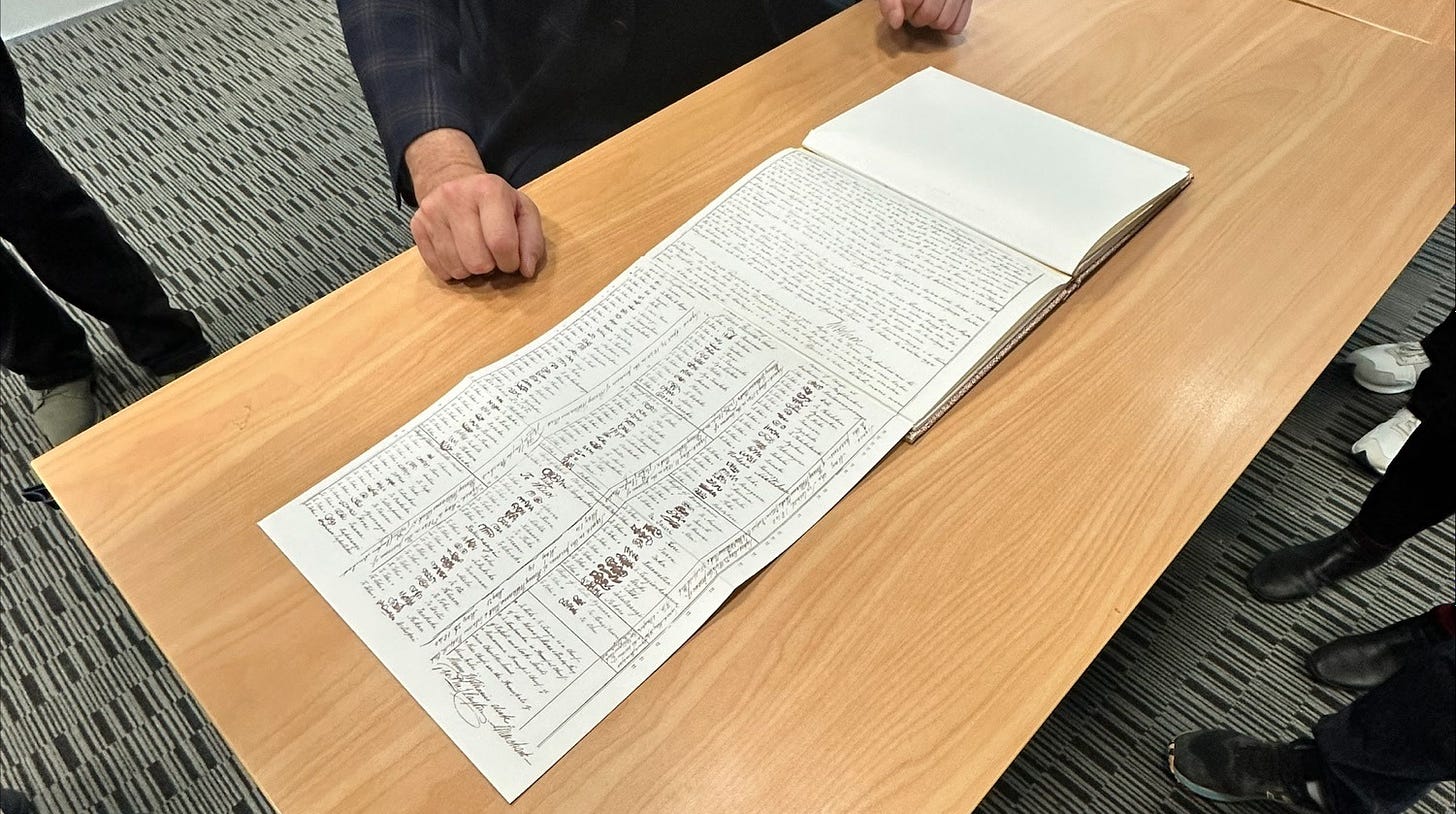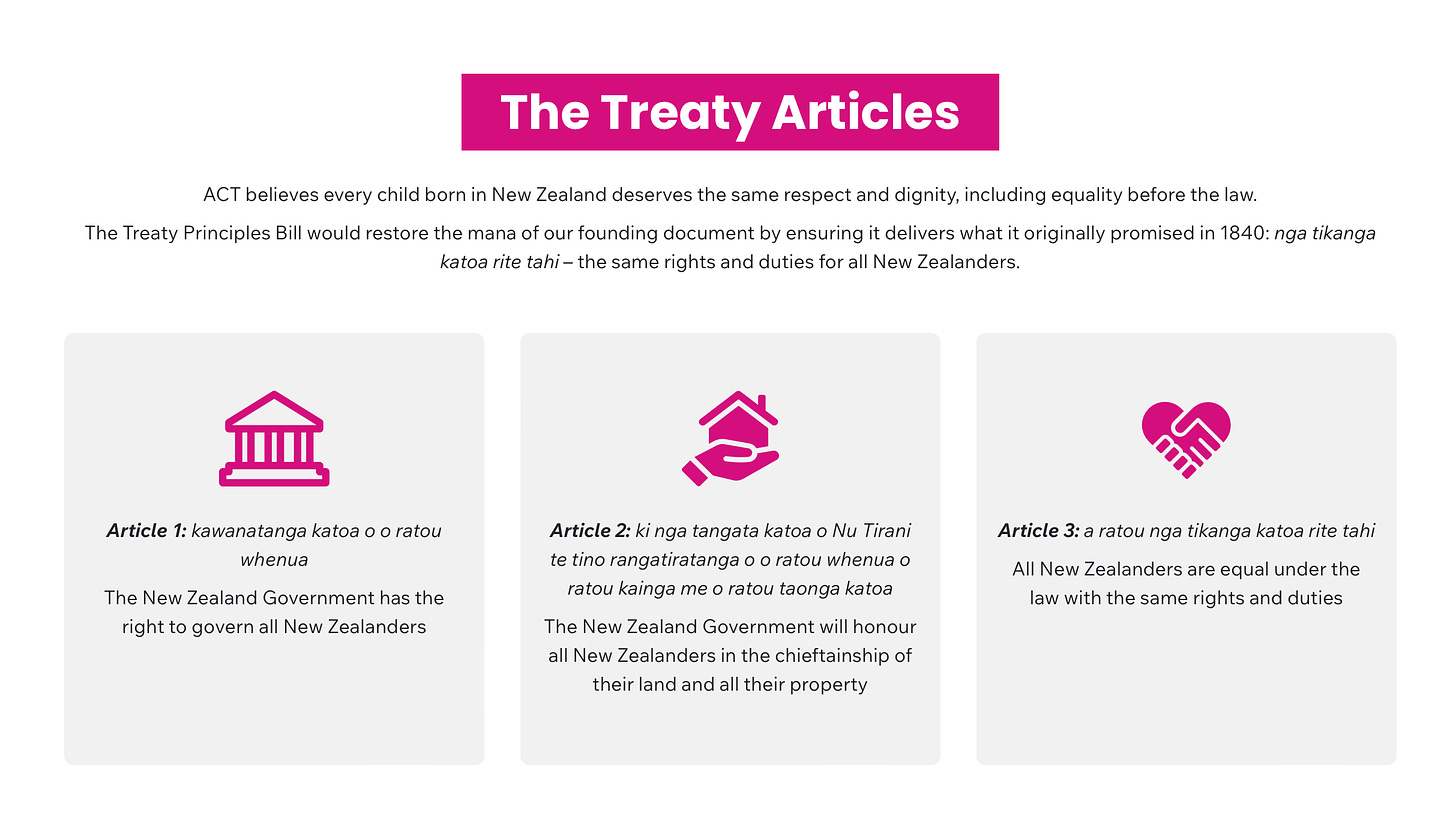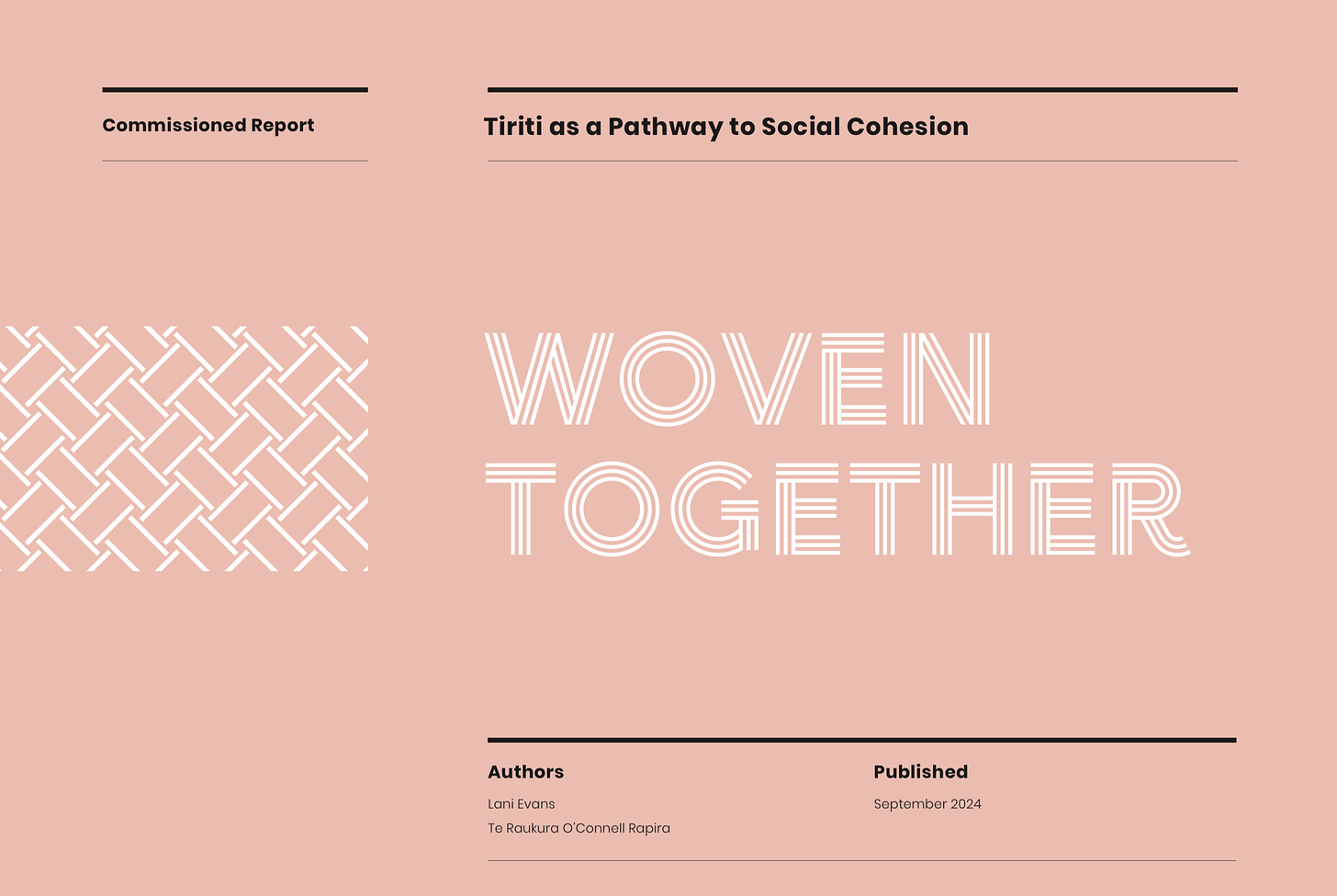Te Wiki o te Reo Māori: A Quick Dive into the Treaty Principles Bill
To mark the week, I’m sharing a few brief thoughts and resources on the Treaty Principles Bill—not a comprehensive take, just some key points to consider.
Introduced by the ACT Party, the Treaty Principle Bill aims to redefine and codify the principles of Te Tiriti o Waitangi within New Zealand’s legal framework.
I oppose this bill. Once it opens for public consultation—hopefully in November, though the exact date remains unclear, at least to me—I’ll submit my own formal submission. My personal standing in relation to Te Tiriti o Waitangi and this particular topic is as an over-seas born New Zealander who is not Māori or a lawyer. I have lived and worked in Aotearoa for 13 years, and I owe my presence in Aotearoa to Te Tiriti o Waitangi and the breaches that have occurred since its signing in 1840.
Back to the Treaties Principles Bill
Recent news reports state, “Act leader David Seymour’s Treaty Principles Bill is coming before the Cabinet.”1 Danyl McLauchlan has an excellent summary of the Bill, which I highly recommend reading for more context.
Why I Oppose the Bill (Briefly)
Racist tones aside, one aspect I don't often see discussed is that Treaty Principles are not the same as Treaty Articles—and that distinction is vital. Treaty principles were created to help Pākeha better understand Te Tiriti o Waintigui at best and dilute the responsibility of Te Tirti o Watangui at worst.
The Spinoff explains this better than I ever will in their article: The principles of the Treaty of Waitangi, explained.
I worked in government for 13 years and heard about the Treaty Principles of Participation, Protection, and Partnership more times than I could count. However, I rarely saw, explored, or used the Treaty articles. So, I think we also have a gross misunderstanding of the language related to Te Tirti o Waitangi.
Now, even setting aside the cultural, historical, legal, and racist issues with this bill, from a purely political perspective, it’s also a colossal misstep. Using Te Tiriti o Waitangi as a political football might energize a certain voter base, but it comes at a much larger cost. It risks creating more dangerous divisions that will be nearly impossible to heal, particularly in today’s world, where misinformation and disinformation can spread like wildfire online.
By turning Te Tiriti into a polarizing issue, you’re not just inviting debate—you’re inviting confusion, resentment, and further division among voters. This is a high-risk, low-reward strategy that will backfire, not just in terms of the Bill itself but in how it shapes the public’s view of politics and governance in New Zealand for years to come. It’s shortsighted, irresponsible, will be ineffective and narrow-minded. Instead of focusing on unity and informed discussion, it opens the door to entrenched, broader polarized viewpoints that are much harder to undo once they're out in the open. And if you happen to be a person who supports this bill, please know you are inviting the Left to swing harder to the left, which I am sure you don’t want.

A Long History of Debate
As most of us know or should know, Te Tiriti o Waitangi has more than one version—there are two. The Treaty was written in both English and Māori, but these versions aren’t exact translations of each other. That alone sets the stage for debates across many fields, including history, politics, policy, and law over many years.
When the Treaty was signed in 1840, those who took part brought very different experiences and interpretations to the table. Words like kawanatanga (governorship) and tino rangatiratanga (chieftainship or sovereignty) were understood in varying ways depending on who you asked. Add to that the fact that when British officials presented the Treaty to different Māori groups, their explanations likely varied as well. The different cultural lenses and the fact that people were working off two non-identical texts created a recipe for ongoing debate—a debate that this new Bill is only likely to intensify and worsen.
So, fast-forward to 2024, there’s still disagreement over how the Treaty should be interpreted and what obligations it creates, I don’t think many people would deny that, however this Bill is not the way to have that debate, its just a way to piss people off, further divide groups with competing views and loose ACT the next election.
Breaking Down the Treaty Principles Bill
So, what exactly is the Treaty Principles Bill? According to ACT, it aims to “clearly define the Treaty principles in law,” essentially rewriting decades of interpretations made by the courts and the Waitangi Tribunal. ACT's version of the Treaty boils down to legalizing these three key framings:
Kawanatanga katoa – The New Zealand Government has the right to govern all New Zealanders.
Tino rangatiratanga – The Government will respect all New Zealanders' authority over their own land and property.
Equality before the law – All New Zealanders are equal under the law, with the same rights and duties.
So, if this Bill has you fired up, it's time to start thinking about what your submission could look like. There will be plenty of resources to guide you through this process, and the more specific and informed your submission is, the more likely it is to make an impact.
One document to kick off your research is ACT’s “A Path from Co-Governance to Democracy”. There’s a lot to unpack in there, and it’ll help you craft a submission that’s sharp, informed, and to the point.
Here’s the link: 230916_ACT_Policy_Document_(CoGovernance).pdf
It's crucial to understand the core of the debate—what Te Tiriti o Waitangi actually says in both English and Māori, and how those versions differ. Understanding these nuances will make it much easier to pinpoint why this Bill is so problematic and how to effectively push back against it.
Below are some straightforward resources from Te Papa that help break this down:
Two parties, two understandings: What does the Treaty of Waitangi mean?
This article explains why there has always been confusion about what Māori and the British actually agreed to when they signed the Treaty.English translation of the te reo Māori Tiriti
A side-by-side comparison of the te reo Māori version of Te Tiriti with the English version highlights several critical differences, especially in the first and second articles.
Here’s a quick look at those differences:
First Article: Māori chiefs give the Queen complete government over their land.
Second Article: The Queen agrees to protect Māori chieftainship over their lands and treasures, but chiefs will sell land to the Crown under agreed conditions.
Third Article: The Queen promises to protect ordinary New Zealanders and give them the same rights as British citizens.
These differences matter. If you compare what ACT’s Bill is trying to achieve with what Te Tiriti actually says, it becomes much easier to craft specific arguments and advocate effectively against the Bill. Understanding these points is key to making sure our submissions are well-informed and impactful.
Yesterday a new beautiful resource was made public, a report called Woven Together written by Lani Evans and Te Raukura O’Connell Rapira. I was lucky enough to have been approached by Lani to share some of my insights and experience of working with the idea of social cohesion, its origins, limitations and implications. I strongly suggest reading this. One quick quote I pulled out before publishing this article:
“All evidence to date concludes that a multi-pronged approach is required to improve social cohesion. A systematic studies found the most effective strategies were awareness raising and countering stereotypes through education, facilitating positive intergroup contact, and building inclusive social norms and identities.” P. 12 of Woven Toegther.
And with that, I'll leave you with some homework: keep the conversation going. What kind of Aotearoa do we actually want? No pressure—just the future of the country at stake.
I'll let Dr Carwyn Jones have the final word on this one:
“The Treaty should not be seen as a divisive document but as a framework for a positive future.”
Until next time, keep questioning, debating, and maybe even reading and writing about it, especially if it’s for our written submission.
See ya next Tuesday!
Danyl McLauchlan: Doomed debate around Act’s Treaty Principles Bill turns up heat on polarising issue - NZ Herald







The left failed to provide a way for the wider NZ society to debate so we got Seymour. We left the gap, he filled it. His Treaty Principles Bill is less about coorectly framing what was signed and more about what Seymour & Co wish had been signed. It needs to be addressed on that front as much as trying to put him right on points of history and law. And whatever your position, both approaches need discussion. I only wish the left had been smart enough to have set the terms of that debate. Maybe it's not too late if we stop throwing rascist accusations too easily and start engaging.
I disagree with your thesis but enjoy your clarity in this article.
I think we need to have a conversation as a community that will indeed be regressive and divisive, on one perspective, while consciousness-raising and essential on the other.
The treaty is a red herring. The core issue is the stealthy (as in ‘not-yet publicly debated’) shift in New Zealand’s constitution over the past five decades. This has been brought about by an unelected vanguard of virtue.
I support the treaty principles bill as a simple and corrective statement of what a democracy is.